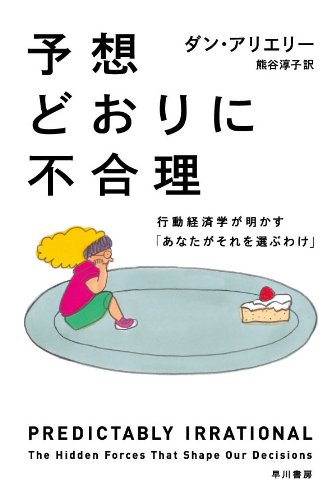- Published on
Why do even water taste good when you hear "high-class"? ~The power of 'expectation' to change the taste of reality~
Source: Dan Ariely, "Absolutely as Imaginable" (Hayakawa Publishing)
Roughly speaking
- Even if the same coffee is the same, it tastes delicious when you drink it in a high-quality cup because your brain is being deceived by the "expectations" that it should be delicious.
- As Dan Ariely's "Balsamic Vinegar Beer" experiment proved, it tastes bad if you "know" it tastes bad, but if you drink it without knowing it, it tastes good.
- This effect extends not only to the taste but also to the effects of painkillers. If you expect "a expensive medicine to work," the pain will really ease. This is the essence of the placebo effect.
Introduction: Is it really delicious?
Can you accurately tell the taste of a high-end wine worth 5,000 yen per bottle and a table wine worth 500 yen with the label hidden? Many people probably aren't confident. However, once you see the luxurious label, you will find that the 5,000 yen wine has a more complicated and rich flavor.
We believe that our tongue and nose objectively judge the taste. However, the numerous experiments Dan Ariely demonstrated in "Absurd as expected" fundamentally overturns that confidence. Before our brains experience, our brains form an "expectation" that "this should be delicious" or "this should work", and those expectations change the taste and sensations of reality.
The truth about beer with balsamic vinegar
Ariely revealed the power of this "expectation" in a clever beer tasting experiment with MIT students. He provided the students with two free beers.
- Beer A: Regular commercial beer
- Beer B: Same beer mixed with a few drops of balsamic vinegar (commonly known as "MIT beer")
First, when they had them sampled both without telling them anything, most students preferred the "MIT beer" with a slightly unusual flavor. However, another group honestly told us before tasting, "This beer contains balsamic vinegar." So, what will happen? This time, most students frowned and rated "MIT beer" as bad.
The negative information about "vinegared beer" has formed a strong expectation that it must be "bad" and has actually dominated the taste itself. Taste is not something you can feel with just the tongue, but is part of the "story" produced by your brain.
Why does "expectation" dominate reality?
This phenomenon is not just a preconception. Expectations cause physical changes in reality in our brains. The most prominent example is the "placebo effect."
Ariely demonstrated this in an experiment with painkillers. He told subjects that he was testing a new painkiller and gave everyone a Vitamin C tablet (placebo). However, one group told them "This drug costs 2.50 dollars a tablet," and another group said "10 cents at a discount." Despite the exact same placebo, the group who took "expensive drugs" reported much higher analgesic effects than the group who took "cheap drugs."
It is thought that the expectation that "high-quality medicines should work" promotes the secretion of pain-reducing substances (such as endorphins) in the brain, and actually relieves the pain. Expectations are not just a relaxation, they have the power to act directly on our bodies.
[Improvement proposal] Design expectations with the power of "rituals"
This powerful "expectation" power can be used to enrich our lives. It is about creating "rituals" for things.
Rich for the best coffee drink: Even instant coffee is poured into your favorite, most expensive cup, carefully pour the milk in it, enjoy the rising aroma, then take a sip. This series of actions raises the expectation that "it's a special drink" and actually enriches the taste experience.
Rich to improve work concentration: Before you start work, always clean up your desk, play certain music and make hot tea. This ritual will become a powerful anchor to your brain to "go into focus mode" and increase productivity.
By consciously designing "expectations" by energizing the expectations of the listeners in presentations or creating the best atmosphere on dates, we can increase the very value of the experience.
Conclusion: Your reality will be as you expected
The reality we experience is a co-production of objective facts and subjective expectations. And in many cases, the latter power outweighs the former. Knowing this fact may transform us from merely receivers of reality to artists who create their own experiences.
The next time you experience something, or experience something, stop and think about it. I wondered what kind of spice I was sprinkling with now called "Expectations"?
[Actions to encourage action] By the way, how did people react when they "later" told me about this fact after drinking beer with balsamic vinegar? Its amazing and human results can be read in 'Absurd as expected'. Please pick up this book and discover the heartbeat that is interwoven with expectations and reality.

